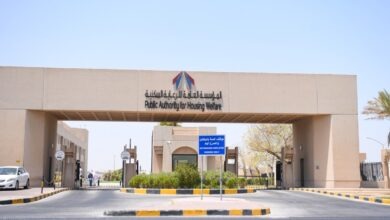“Health Ministry” claims decisive steps taken to prevent Papilloma-related diseases

The Director of the Preventive Health Department at the Ministry of Health, Dr. Fahd Al-Ghamlas, confirmed that the Ministry has taken decisive steps to prevent diseases and cancers associated with the human Papilloma virus, by facilitating access to vaccines and increasing community awareness.
This came in a statement Al-Ghamlas made to KUNA, after chairing the second Kuwait Public Health Conference, “Confronting Public Health Challenges…Proposed Solutions”.
The conference was organized by the Public Health Department over two days, to discuss the most important issues affecting the health of individuals and society as well.
Al-Ghamlas shared that the participants in the conference stressed the importance of the HPV vaccination campaign, in raising awareness and preventing it, as well as cooperation between various specialties to promote public health.
In addition, Al-Ghamlas mentioned that the discussions in the conference, highlighted about the need to continuously keep abreast of developments related to emerging and recurring diseases, to avoid the spread of epidemics, and formulate recommendations that can be applied on the ground and tested practically.
Al-Ghamlas also added that the discussions stressed the importance of data from integrated respiratory disease surveillance systems in making public health decisions at the national, regional and global levels, thereby enabling early detection and rapid response in emerging respiratory viruses, including potential threats.
On a cautious note, Al-Ghamlas explained that the discussions focused on the need for public health policies and programmes, to take the issue of climate change into consideration. In order to be an effective tool in protecting the health and well-being of all groups, especially those most vulnerable to its effects.
Furthermore, he stated that the conference also confirmed that the State of Kuwait is working to build a flexible health system, capable of confronting the effects of climate change on health, which requires enhancing cooperation, and at the same time building effective capacities in this field.
Al-Ghamlas pointed out that the participants emphasized upon the importance of disease surveillance, and early warning systems in understanding and mitigating the effects of climate change on public health.
As well as the need to continue and enhance coordination between the Ministry’s Public Health Department and the Public Authority for Agriculture Affairs and Fish Resources, to report cases of diseases common to humans and animals, in a short time if they occur.












